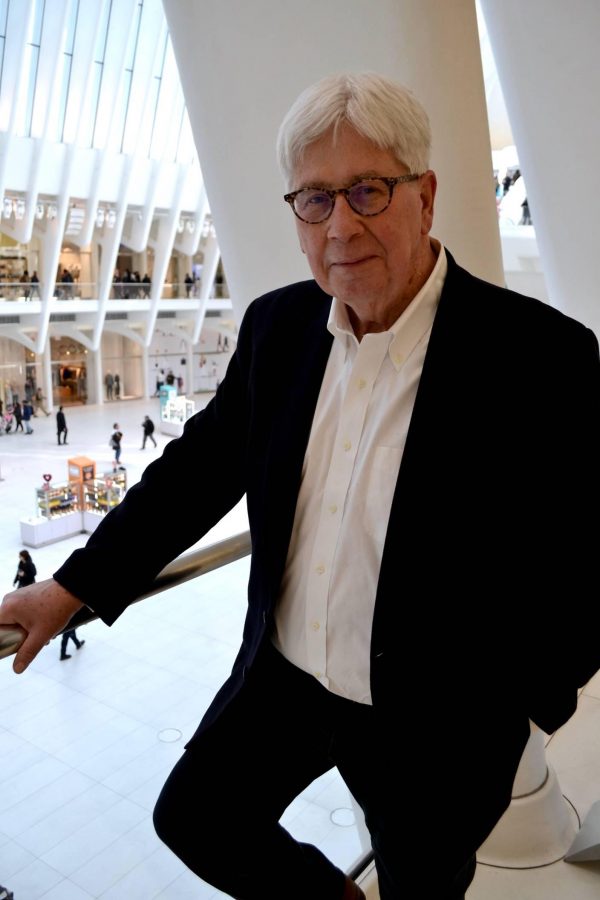The Life of R. B. Scott
Author Ronald B. Scott is a Salt Lake native. Raised in the valley as the oldest of eight, he found himself able to explore the city in different ways. Wandering home from school and piano lessons, what Scott refers to as, “the bright side of being unsupervised,” he traveled up through the Avenues and down past the university before finding his way home. Scott recalls watching the games at “Ute Stadium” and knowing the cheers from East High and the U even as he moved across town to attend another high school.
After graduating, Scott served a mission for The Church of Jesus Christ of Latter-day Saints in New England, where he was tasked with writing small pieces to help grow the outreach of the church on the East Coast, where congregations are sparse. When he came home two years later, he walked into the office at The Daily Utah Chronicle, pieces in hand, and applied to work on the staff. He started studying journalism here at the U and covered a lot of different tasks as a member of the small Chronicle staff.
Scott’s work on campus led him to a job at the Salt Lake Tribune, where he started writing obituaries. He came across a tragic story of hunters trapped in Sun Valley snow and followed his instinct, pulling together a piece that got him noticed in New York. It was published in in Life magazine, and Scott received a job offer from the company several months later.
Moving to New York, Scott’s original position was as an editorial staff member for Life, one of the last reporters hired to work on the publication because of its decline. When the magazine started to go under, Scott was moved to a new position under the Time Inc. umbrella writing for Sports Illustrated and then joining the magazine development staff that originated People magazine. Scott recalls someone asking him why he would move all the way to New York to start a job at a failing magazine, and he replied, “You’re kidding! Why wouldn’t I? It’s where I want to be.”
A Novel Story
When Scott was working for the Tribune in 1968, he was hastily sent to cover former governor George W. Romney’s homecoming. Romney had just stepped out of the presidential race and Nixon received the Republican party nomination before being elected. A reception was held in the old Hotel Utah. A young Scott was there reporting, relatively unprepared to meet with Romney but impressed by the time and attention he gave Scott in an interview.
As a Utah native, he had followed the Romney family for years and had a lot of respect for his 1968 presidential run. So when George’s son Mitt Romney announced his own presidential bid, Scott was intrigued. He began piecing together the family history, analyzing what makes the man tick and what qualities would make him fit (or unfit) for the White House and started writing a book.
Scott’s “Mitt Romney: An Inside Look at the Man and His Politics” was the first biography of the politician that was independently published and unauthorized by the man in question. Drawing upon history, religiosity, personal interviews and political debates, Scott wrote the “crash” book in 60 days, the goal being to publish it before August 2012, following the “Romney phenomenon” surrounding political discussion.
The success and acclaim of “Mitt Romney” acted as a springboard which allowed Scott the credibility to publish his first fictional novel “Closing Circles.” The book follows a Latter-day Saint journalist’s struggle with confronting his family heritage and contradictory worldview through a series of connected perspectives. When asked if the story of a New York journalist returning to his Utah roots was autobiographical, one could nearly hear Scott smiling through the phone at a question he tediously answers so often. He replied, “Every writer draws from what they know.” His works of fiction are taken from the feeling you get from your hometown, the issues that surround you as you grow and the ways you start to recognize the water you were swimming in all along.
Running in the same vein, Scott has recently published his second work of fiction, entitled “The Mending,” which follows Benjamin Pratt, a Latter-day Saint man living on the east coast who returns to Salt Lake for his high school reunion. An early review by actor Jim Jansen credits Scott with, “introducing [Ben] Pratt as a pretentious, self-absorbed curmudgeon that readers may dislike initially … and transform him into an accommodating and kind, if surprisingly complicated and compromised human being.” “The Mending” is available now, and Scott is launching a book tour, which started at the King’s English Bookstore in Salt Lake on April 11.
Back to His Roots
Scott is eloquent, composed and well-formulated while not being afraid to take a crack at himself and correct as he goes. Talking to him makes one want to stop and listen to the insightful stories that he has to share, of which he has many. Just from the bits of his life he shares, it is evident he is a dedicated father and husband outside of the work he does.
As a storied journalist of his own, he provided some lovely life advice to a novice, encouraging those in their college days to “make the most out of what you are doing and think a few steps ahead to the possibilities.” He chuckled and added, “I got lucky.” For all of his work and accolades, Scott remains humble. He is still interested in what makes people tick. When asked about his own religious beliefs, he shares that he is an active member of the church, but wants to focus on only the “important things” in the doctrine of the church. “Love others, and the rest will take care of itself,” he said.
While no release dates are available for any of Scott’s next works, he shares that the title of his next book is “Playing in Peganfield,” his first novel from a female perspective following a daughter and her screwy father. “That one is not autobiographical,” he joked.
With other short stories and novels in the works, Scott continues to write. Living in Connecticut now, you can find him writing commentary on his website or the occasional op-ed in addition to his numerous pieces of fiction. Though nearly 74, he shows no signs of stopping. He likens writing to running, how taking a day off from the extreme and near addicting activity leaves you feeling sluggish or stopped. “I get up in the morning and my brain is functioning, so I write.”
This article is part of the Poynter College Media Project. Click here for more stories and information on the topic “Are U Mormon?”



